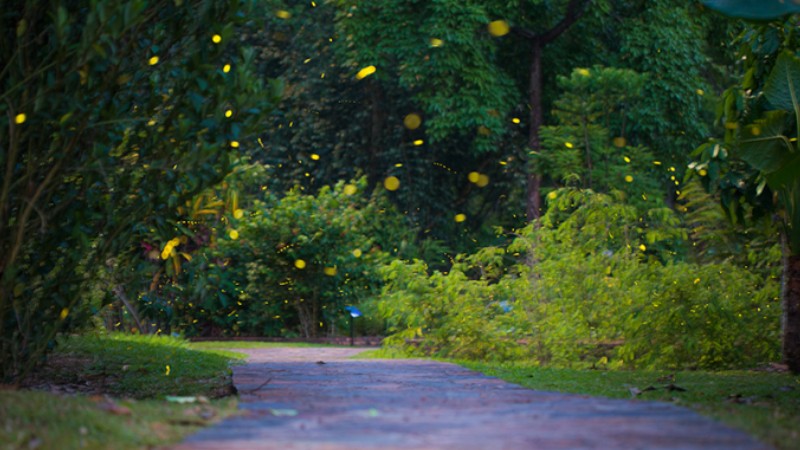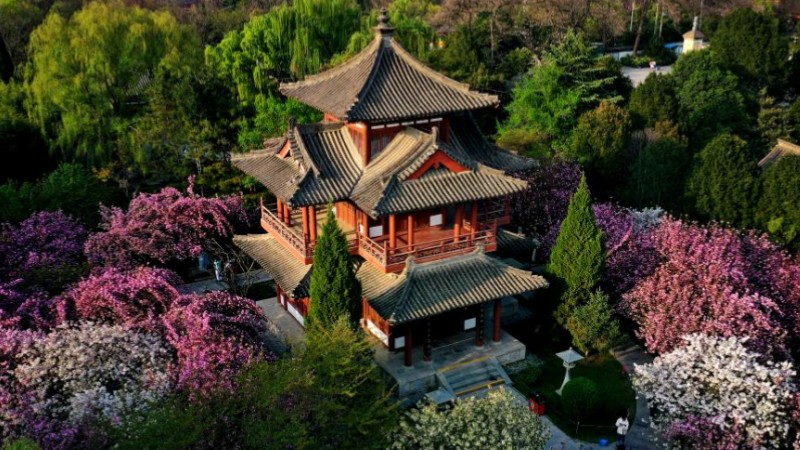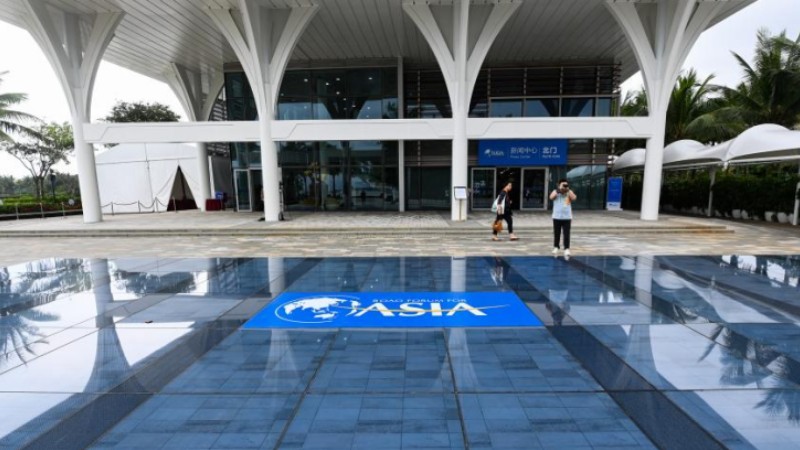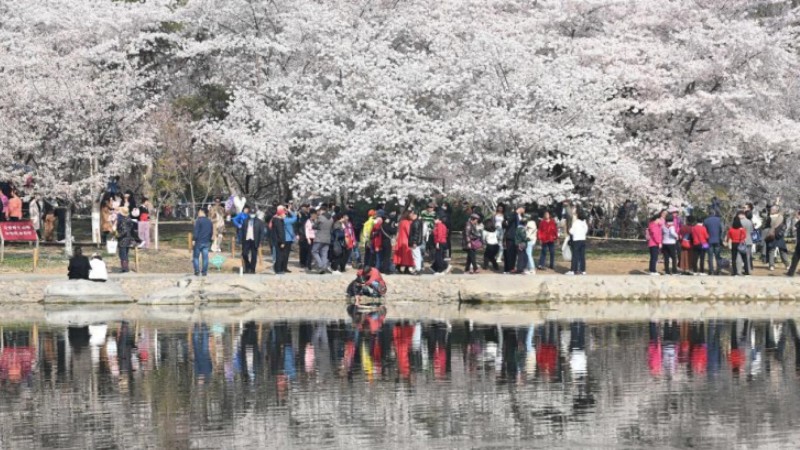Feature: Chinese doctors on aid mission in Tunisia befriend patients, colleagues
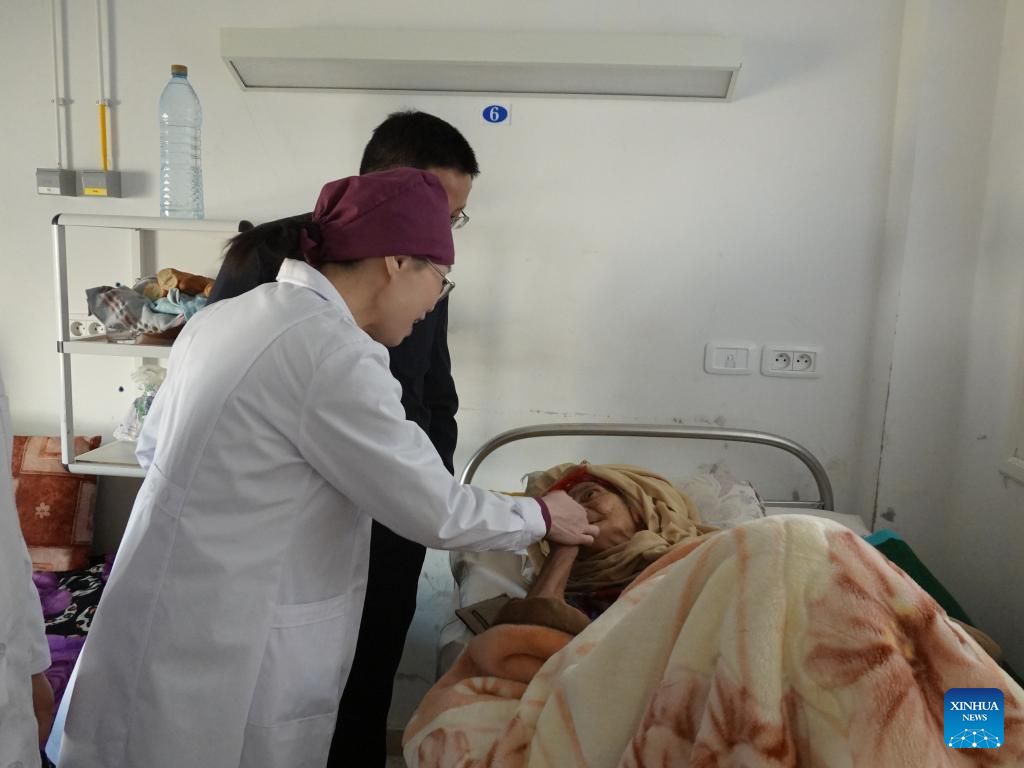
Anesthetist Peng Xihua checks the condition of a patient at Sidi Bouzid Regional Hospital in Sidi Bouzid, Tunisia, on Feb. 17, 2023. (Xinhua/Xu Supei)
TUNIS, April 4 (Xinhua) -- Despite the passage of 50 years, Xiao Chengjing still remembers vividly the day he traveled to Tunisia on his first trip abroad.
"Everything was new to me," Xiao, 84, recalled the excitement of flying on a Boeing plane while donning headphones and listening to music back in 1973.
The veteran Chinese hematologist, from the Jiangxi province in southeastern China, was a member of the first medical team that China sent to Tunisia in a goodwill gesture to provide medical assistance to the North African country. Xiao called himself and his colleagues as "diplomats in white" as they helped deepen mutual understanding and friendship between the two peoples.
Huang Jian, a Chinese anesthetist and member of the current 27th batch of Chinese doctors sent to Tunisia last December, found many familiar names when browsing the list of previous teams, including his colleagues, retired hospital deans, and even his neighbor, Xiao Chengjing.
Over the past half-century, China's Jiangxi province has sent a total of 1,153 medical personnel in 27 batches to Tunisia, providing a total of 6.1 million outpatient services to Tunisians.
The Chinese doctors work not only in urban cities, but also in rural and remote areas, alleviating the pains of tens of thousands of Tunisians. Currently, there are 38 Chinese medical personnel assigned to work in four Tunisian cities, including the Tunisian capital of Tunis, Sidi Bouzid, Gafsa and Jendouba.
Joining the Chinese medical team in Tunisia was a dream coming true for Peng Xihua, an anesthetist working with the team in Sidi Bouzid.
"Since my first day here, I was told how the Jiangxi medical teams had represented our motherland and provided assistance to faraway Tunisia. These stories sowed a seed in my heart," Peng told Xinhua.
Before departure for Tunisia, Peng was fully prepared for the challenging work ahead. Nevertheless, she was still taken aback by the shortage of medical resources and the heavy workload upon her arrival. As the only anesthesiologist in the Sidi Bouzid Regional Hospital, she once received 37 calls for surgery in a single morning.
Because of Peng's dedication and professionalism, the Tunisian doctors and nurses in the hospital enjoy working with her. They often bring her plates of couscous, a traditional Tunisian dish, as a token of gratitude.
In the northwestern Tunisian city of Jendouba, the capital of the Jendouba Province, Hadda Daboussi, the widow of the former governor, has kept a tradition of inviting every Chinese medical team to her home in the past 40 years.
"Everyone in Jendouba knows that Madame Hadda is a good friend of the Chinese people," Daboussi said, adding that she was moved by the Chinese doctors' persistence in fulfilling their responsibilities of helping the Tunisian people even during the turmoil of the 2011 Arab Spring.
In December last year, at a farewell ceremony held for the outgoing 26th Chinese medical team, Tunisian Health Minister Ali Mrabet commended the Chinese doctors for making a great contribution to taking care of Tunisians' health.
Mrabet noted that the outstanding performances of the Chinese medical staff embody the essence of the China-Tunisia friendship and medical cooperation.
For many Tunisians, their friendship with Chinese doctors over the years has also led them to explore more about Chinese culture and people.
Inspired by her Chinese friends from the medical teams, Daboussi so far has visited China twice, during which she also intentionally visited the Jiangxi province, the hometown of the Chinese medical teams sent to Tunisia.
Mgadmi Salwen, a Tunisian anesthesiologist at the Gafsa Regional Hospital, always bombards Huang Jian with interesting questions about China and even once asked Huang to give him a Chinese name.
Based on the transliteration of Salwen, Huang proposed to him the Chinese name of "Shi Lewen."
"Lewen means joy and refinement. Shi is a common Chinese surname that means 'rock,' symbolizing our wish for the ties between China and Tunisia to be as solid as a rock," Huang explained.
Photos
Related Stories
- Tunisian president thanks China for long-term development support
- Tunisian health minister lauds Chinese medical team for service
- Chinese medical team to Tunisia holds free clinic at local university
- China-aided sports, cultural center handed over to Tunisia
- China-aided sports, cultural center in Tunisia to be delivered soon
- China, Tunisia sign new agreements on health care cooperation
- Tunisia, China sign 4-year implementation plan for cultural cooperation
- Tunisian FM stresses cooperation with China as China-Arab expo starts
- China to donate more COVID-19 vaccine to Tunisia: embassy
- China to donate 100,000 doses of COVID-19 vaccine to Tunisia: embassy
Copyright © 2023 People's Daily Online. All Rights Reserved.






